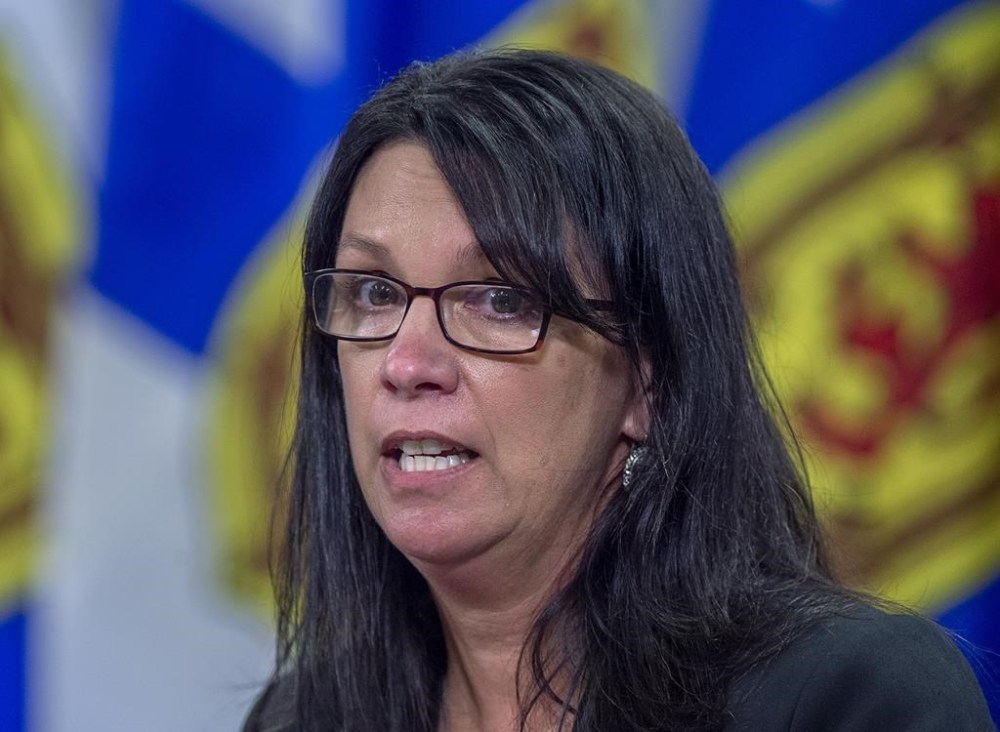Nova Scotia expands immigration program in bid to fill pharmacy, paramedic jobs
Advertisement
Read this article for free:
or
Already have an account? Log in here »
To continue reading, please subscribe:
Monthly Digital Subscription
$0 for the first 4 weeks*
- Enjoy unlimited reading on winnipegfreepress.com
- Read the E-Edition, our digital replica newspaper
- Access News Break, our award-winning app
- Play interactive puzzles
*No charge for 4 weeks then price increases to the regular rate of $19.00 plus GST every four weeks. Offer available to new and qualified returning subscribers only. Cancel any time.
Monthly Digital Subscription
$4.75/week*
- Enjoy unlimited reading on winnipegfreepress.com
- Read the E-Edition, our digital replica newspaper
- Access News Break, our award-winning app
- Play interactive puzzles
*Billed as $19 plus GST every four weeks. Cancel any time.
To continue reading, please subscribe:
Add Free Press access to your Brandon Sun subscription for only an additional
$1 for the first 4 weeks*
*Your next subscription payment will increase by $1.00 and you will be charged $16.99 plus GST for four weeks. After four weeks, your payment will increase to $23.99 plus GST every four weeks.
Read unlimited articles for free today:
or
Already have an account? Log in here »
Hey there, time traveller!
This article was published 22/09/2023 (803 days ago), so information in it may no longer be current.
HALIFAX – Nova Scotia is expanding a fast-tracked immigration program to include international students who want to become paramedics and pharmacy technicians, in its latest move to address health worker shortages.
Health Minister Michelle Thompson and Advanced Education Minister Brian Wong announced Friday the government is adding students in those two fields to its “international graduates in demand” stream.
“It fills critical labour needs and provides international students with a streamlined pathway to obtain their permanent residency,” Wong said during the news conference at a Halifax pharmacy.

“We want them to stay here after they graduate.”
The province is allowed to nominate immigration candidates for federal approval, and in this case it’s hoping international students trained in Nova Scotia as paramedics and pharmacy technicians will settle in the province.
Nova Scotia’s accelerated immigration program already includes nurse aides, orderlies, continuing-care assistants and daycare workers.
Allison Bodnar, chief executive of the Pharmacy Association of Nova Scotia, told the news conference that pharmacy technicians can fulfil tasks such as dispensing medications after the prescription is reviewed by a pharmacist. There’s a need for about 200 technicians over the next few years, she said.
Meanwhile, Charbel Daniel, director of operations for Emergency Medical Care Inc. — which operates the province’s ambulance services — said between 150 and 200 paramedic positions could be available to international students after they’ve been trained in a certified private or community college program.
The announcement is one in a series by the Progressive Conservative government aimed at overseas recruitment. Premier Tim Houston has said that his top priority is to address shortcomings in the health-care network.
In March, the province’s nursing regulator announced it would reduce the timelines for nurses from seven foreign countries, including India, Nigeria and the Philippines, to be licensed in Nova Scotia from about a year to “a few weeks.”
According to a website that tracks the expedited licensing process, there are 4,318 nurses who have applied, with 861 now eligible to be licensed in Nova Scotia.
Health officials have recently been in Kenya, where they interviewed refugees with health-care backgrounds interested in moving to the province. To date, about 50 refugee program applicants are being considered.
Margaret Walton-Roberts, who teaches in the geography department at Wilfrid Laurier University, in Waterloo, Ont., said in an interview Friday that Nova Scotia should be mindful of the World Health Organization’s global code of practice for recruiting health personnel.
The code calls for wealthy Western nations to consider the needs of lower-income countries when attempting to attract health workers.
Nigeria — whose nurses are among those being granted fast-track licensing in Nova Scotia — is on a list of nations the WHO designated this year as having “pressing health workforce needs.” The agency says “active” recruitment in that country is discouraged.
However, Walton-Roberts said Nova Scotia’s approach has been “careful” in seeking to “understand what it means to ethically recruit.”
And Thompson said Nova Scotia’s recruitment efforts have been conscious of the WHO code of practice, adding that the government approaches people who have already indicated they want to move to Nova Scotia.
This report by The Canadian Press was first published Sept. 22, 2023.


